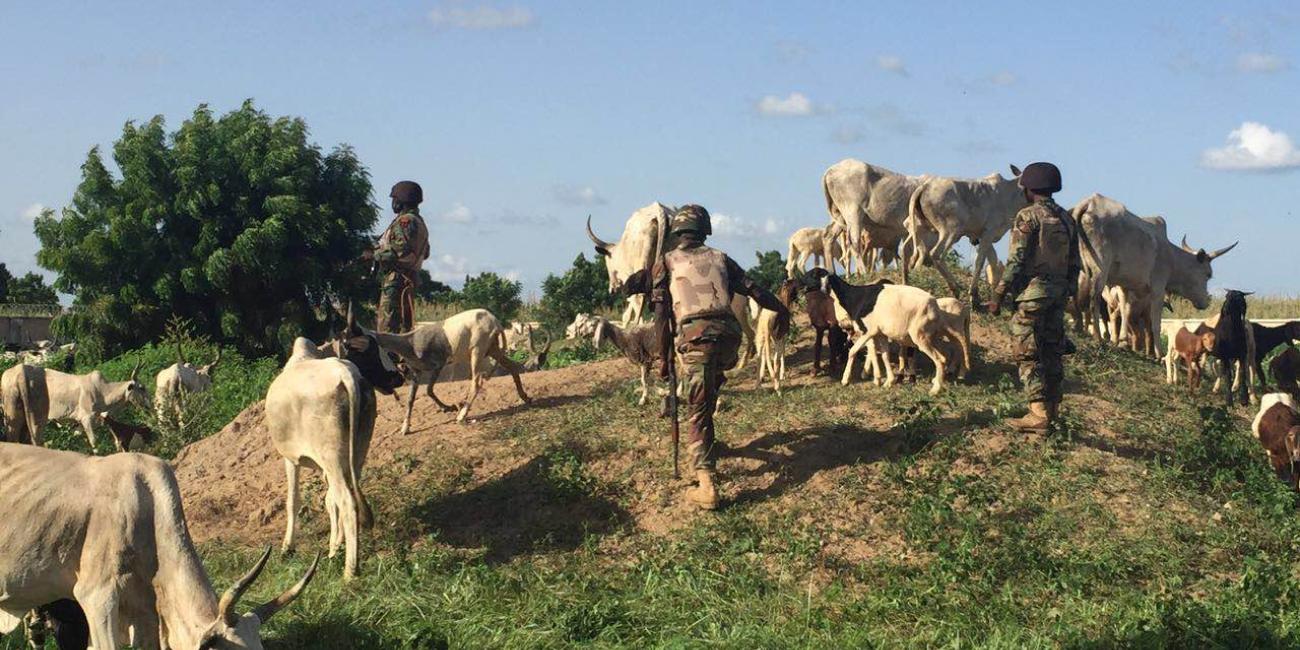Food Security: The Many Hurdles Of Farmers In ‘Troubled’ States

By Grace Samuel
Farming in some states in Nigeria particulary in the northern part of the country such as Borno, Niger, Benue and Plateau State has been a herculean task for farmers in the past couple of years as a result of insurgency, banditry and climate change.
In the past couple of years, farming communities in Borno, Niger, Benue and Plateau State respectively, have been plagued by banditry attacks. Farmers in these states and others in northern part of the country were always under threat from the tripple menace of insurgency, banditry and climate change. These troubling challenges have been seen as what prompted farmers to abandoned their farmlands in search of temporary shelter elsewhere.
Before the advent of insurgency in the northern part of Nigeria, agricultural products grown in this part of the country include beans, rice, sesame, cashew nuts, groundnuts, gum arabic, kolanut, yam, soybean, millet,etc.

However, in the past years, farming communities in the listed states were plagued by a surge in insurgency and banditry attacks. At a point, bandits collect levies from farmers before the latter are allowed to access their farmlands. Farmers that refused to pay this illegal levies were dealt with ruthlessly; the unluck ones gave up the ghost in the custody of bandits.
For exmple, In Niger Stte, regions such as Rafi, Munya, Shiroro, Mariga and part of Paikoro Local Government Areas are places where bandits have launched audacious attcks wreaking havoc on agrarian rural communities. The bandits spread their reign of terror across the state. They infiltrated villagers, set up camps, and brazenly cook and feast without obstruction. As the bandits spread their reign of terror, Kontagora and Mashegu local government areas witnessed multiple killings.
In Borno State, North East Nigeria, farmers have a few hours they can work on their farm during the day. Farming situation in the state eventually became the later they work , the more unsafe the farmer become. Farmers have few hours they work on their farm during the day. They have no other way to survive. If they don’t go to their farms, they will starve and they have been starved for long.
Farmers in Borno knew the risk involved but they have to take them because they must survive. They kept on going to their farm after adopting new strategies such as planting crops in smaller , more dispersed fields near highways, to reduce the risk of attack by insurgents. The state recorded years of low farming activities due to the violence presence of Boko Hram.
Recently, the Borno State Government launched a program to encourage a mass return to farming after years of people’s total abandonement of their farmlands.
In spite of the state government’s intervention, farmers in Borno still face challenges accessing their central lands because security cannot guaranteed their safety beyond a few kilometres from a township or highway.
Farmers risk it all to work on farm fields in Borno State. The introduction of the Agro-Rangers Force in the state was intended to ensure farmers’ safety but the number of rangers available are far from being adequate.
Abdulmumuni Bulama, a local security operative working with the Agro-Rangers, was concerned more about farmers whose farmland were located deeper in the dangerous bushlands.
According to Bulama, these farmers needed more protection. As they burn their cleared farms before tilling the land for planting, plumes of smoke rises in the distance and this is a clear signal that used to expose their location to potential attackers. Farmers who farm along the treacherous Maiduguri – Biu highway, told tales of how insurgents terrorized farmers without obstruction.
Many of the living ones shared their experiences and hopes for the future as they prepared for the farming season which typically begin in June when the heavy rains begin, except for the southern region, where the rains starts earlier. The situation of terror unleashed on farmers by bandits is even worse in Benue State regrded as the food basket of the nation.
Findings conducted over farmer’s challenges in ‘troubled’ states in Nigeria revealed existence of three types of challenges. The first being insurgency and banditry which are man-made. There are challenges confronting them as a result of climate change such as unpredictable weather situation, loss of viable land, erosion, and other factors that decreases the ability of farmers to use land. All
all these and more usually brought untold hardship on the farmers including the women farmers across the troubled states up north.
Importantly, farmers in the ‘troubled’ states in the north usually failed to produce as expected during and off-planting season because majority of them still practices subsistence farming. This olden days method of farming have been found not to serve the growing population in the country.
Farmers who are still practising subsitence farming suffers a lot because they have limited access to modern farming techniques, they don’t usually have the financial capability to go into mechanised farming; most times they practised farming in semi-arid environment particularly farmers who are into irrigation farming. Most of them wasted much energy and their time in preparation for seasonal farming only for them not to farm when lack of water distrupted their plans.
Apart from insurgency, banditry and climate change that affect produce of farmers in the troubled states, inadequate transport, lack of capital, soil erosion, irrigation problems, lack of high quality seed, cides, fertilizers and manures are the most common problems and challenges these group of farmers faces, investigations revealed.
Joshua Nantip, a farmer in Jos, Plateau State, Tavershima Iosurgh in Borno State, Alhassan Kutigi, Niger State, and Christana David, woman farmer in Borno State, all expressed difficulties in cultivating their farms to producing food crops owing to security issues and impacts of climate change.
However, they acknowledged governments intervention in mitigating effects of climate change and put an end to insurgency and banditry that often disrupted farming activities.
